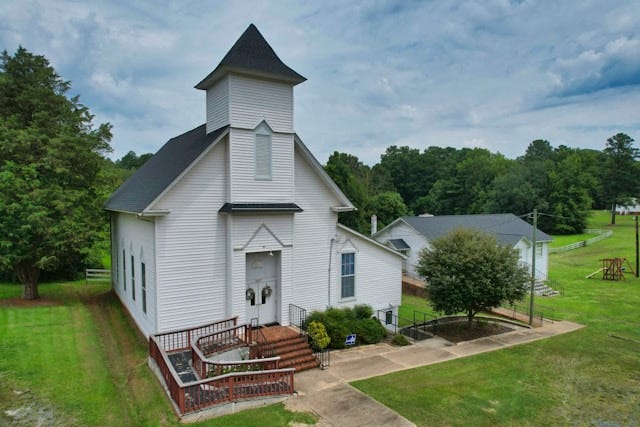What Is a Local Church?
I was asked about how I define a local church recently. Here is my answer.
I confess I probably don't have the most articulate way to define a local church. I simply view local churches as visible manifestations of the one Church of God. That said, when I read traditional Baptist confessions, my definition seems to be fairly consistent with how early and British Baptists define the difference between the church and local churches.
For example, here is how "The Baptist Doctrine of the Church" (1948)* explains it:
"It is in membership of a local church in one place that the fellowship of the one holy catholic Church becomes significant. Indeed, such gathered companies of believers are the local manifestation of the one Church of God on earth and in heaven. Thus the church at Ephesus is described, in words which strictly belong to the whole catholic Church, as “the Church of God, which He hath purchased with His own blood” (Acts 20:28). The vital relationship to Christ which is implied in full communicant membership in a local church carries with it membership in the Church which is both in time and in eternity, both militant and triumphant. To worship and serve in such a local Christian community is, for Baptists, of the essence of Churchmanship."
This follows from the doctrine of the universal church:
"Although Baptists have for so long held a position separate from that of other communions, they have always claimed to be part of the one holy catholic Church of our Lord Jesus Christ. They believe in the catholic Church as the holy society of believers in our Lord Jesus Christ, which He founded, of which He is the only Head, and in which He dwells by His Spirit, so that though manifested in many communions, organized in various modes, and scattered throughout the world, it is yet one in Him. The Church is the Body of Christ and a chosen instrument of the divine purpose in history."
For my part, then, every church can be called the church of Hamilton or the church of Stoney Creek, while recognizing that a local assembly does not exhaust the number of those included in the church of God.
This matches the order of teaching that Baptist Theologian Stanley Fowler mentions as consistent with British Baptist thought, “there is in some sense one church in all the world, and that the logical movement is from that church to local manifestations in the churches” (The Collected Writings 2:41).
As Baptist theologian Madison Grace notes, “Churches can be conceived of locally, as in house churches or regional churches, and universally, as the one body of Jesus Christ” (Baptists and Christian Tradition, 111–2). This notional conception of both local and universal conceptions speaks about one reality, namely, the one holy, catholic, and apostolic church, whether locally visible or spiritually extended.
The one reality that the ekklesia is cannot be divided into so many parts. At least that is my view, inarticulate as it may be!
*A Statement approved by the Council of the Baptist Union of Great Britain and Ireland, March, 1948.




I'd like to see this from other angles. The local church is much more significant I think, than these doctrines hash out.
The pandemic exposed a real weakness in many devout and faithful Christian's understanding of the local church.
For instance, live streamed church services do not and cannot promote true worship as God has laid down in his word.
There is a fountain of God's grace pouring from that pulpit from which we are called to drink and be nourished.
There is communion with him, a bond in blood thorugh His sacrifice.
There is the mystery of how God uses that local body to effect his holy prerogatives.
There is just so much more I think we could say.
I would love to hear you take on whether the gathering that is an hour and a half away from where the preacher is streaming his message is part of the same local church or another church?
I am not baptist. But my understanding is that the Baptist made the message talks about an autonomous local church and those clearly aren't. Unless you consider the six campuses over many counties or States as one local church.
But that all looks more Episcopal to me.